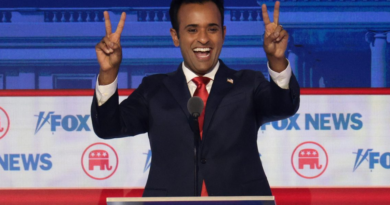Dice books $65M for its event discovery and ticketing platform
Live, in-person activity has come back with force in the wake of years of living with Covid-19, and a London startup that built an events tech business is today announcing funding to capitalise on that. Dice, an events discovery and ticketing platform, has raised $65 million, funding that it will be using to grow in the U.S. and Europe. This funding comes on the back of a year in which Dice provided services to “millions” of fans (no specific numbers disclosed), 55,000 artists and more than 10,000 venues, festivals and promoters across some 30 cities in the two regions, with Dice making money based on fees that it charges to event organizers.
This investment and Dice’s growth goals focus on live events — not live streaming, Dice’s CEO and co-founder Phil Hutcheon told TechCrunch. The latter was an area that the company definitely (and predictably) doubled down on during the pandemic, but that business has largely been wound down in more recent times.
“Nothing beats live and live streaming during the pandemic made sense but we quickly moved back to live events once it was over,” he said. One acquisition that it has made, of Boiler Room, which Hutcheon describes as “the biggest broadcaster of electronic music in the world,” has lived on as a “huge success,” he said, but that’s because it’s also one of the biggest producers of IRL events. He notes that there has been “constant growth” in live events, with the one exception being festivals, which remain “hit or miss” right now.
Although Dice provides discovery and ticketing services for other kinds of live events like comedy and drag cabaret, its mainstay has been music. Fittingly, MUSIC (styled in all-caps, similar to DICE itself) — a VC headed by musician and music executive Matt Pincus that last year raised a $200 million fund to back music tech startups — is leading the round.
Others in this round include Structural Capital and Ahdritz Holding LLC, led by Willard Ahdritz, the founder and chairman of the IP licensing tracking tech startup Kobalt Music; previous backers Exor Ventures and Mirabaud Lifestyle Fund also participated.
Previous big-name backers in the company include SoftBank, Tony Fadell, Xavier Niel and DeepMind’s cofounders. “They are all still very supportive of DICE, remain shareholders, and I’m in regular contact with all of them,” said Phil Hutcheon.
Hutcheon is not disclosing the valuation of the company except to say that it is now higher than the $400 million valuation the startup had in 2021, when we last covered its funding, an injection of $122 million.
“DICE is an opposite company. During the pandemic, people weren’t going to concerts,” he said. “Since summer 2021, every month has been bigger than the last month on DICE. As an ‘opposite company,’ our valuation has gone up since the last round which is great given the macro conditions.”
He also declined to say how much Dice had raised to date, although data in PitchBook seems to indicate it’s just under $200 million. In this latest $65 million, the “majority” is equity with some debt, although the company is not breaking out the actual proportions.
Discovery has been the name of the game for years in areas like e-commerce, social and media platforms. It’s the key to unlocking how users can have any hope of navigating (and ultimately engaging with/buying/watching/clicking/tapping) their way through the vast amounts of choice and content presented to them. One of the main dichotomies in that game of discovery has been around the area of graphs: whether platforms have built their algorithms around their own data, or whether they use cues from other platforms to inform that in some way.
Hutcheon has told me in the past that it’s built its own datasets from the ground up itself — no tapping into Facebook or other social platforms to gain an understanding of what a user might like. That meant that the startup took years to build its platform and finally launch, but it’s an approach that it is sticking with for the most part.
“We largely use our own dataset to give recommendations,” he said. “We use Spotify and Apple Music scanning to give us a bit of a headstart but the correlation between listening data and live attendance data isn’t as strong as you may think. You may listen to techno all day, but you want to watch a band. Or vice versa.”
As such, he added, almost half of all Dice ticket sales come through personalized recommendations.
“It took us so much longer to get the Discovery Algorithms effective since we didn’t use those other data sources, but the investment paid off. We’re very happy we took that path,” he said.
Interestingly, while a lot of startups, and investors, are chasing the tail of AI right now — specifically newer developments like generative AI — Hutcheon declined to comment on whether that’s something that Dice might eventually incorporate into its own platform. You can see how something like a conversation might spur more interaction between a would-be customer and converting that person into a ticket buyer, but that’s not something that Dice is building, at least not something that it is discussing.
Rather its AI focus is more on how that could be used for its business customers — that is, the venues, producers and musicians who are hoping to connect with fans.
In addition to discovery recommendations, “The other benefit of the data we generate with fan recommendations is that we have amazing forecasting tools,” he said adding that Dice is working on tools for artists, venues and promoters to use that data next year.
There are a number of hugely dominant platforms for events and ticketing in the market these days, and the story has been one of consolidation over the years, with more innovative startups bringing something new (or a new audience) to the table getting snapped up by the bigger players. And there is also a lot of hate for these platforms over the fees that they charge on top of already-expensive tickets. That speaks to both some opportunity but also a lack of it in a market where the economics feel like they may never be in favor of smaller players, nor consumers themselves.
But there is a gap there, says Pincus.
“Most ticketing companies are transaction providers for venue ticket sellers. DICE is a user platform for ticket buyers. Its relationship is with the fans who go to clubs and taste driven festivals worldwide,” said Pincus. “People who love to go to shows are the most important consumers in music, especially at a time when the traditional forms of audience engagement – radio, conventional media, DSP algorithms – are being challenged by shifting consumer behavior. DICE matters to fans, who are more connected to the platform each day that goes by. DICE is a gateway to music fans, a position that will allow them to build on their leading ticket business in ways that others cannot.” Pincus (who I should point out is the son of the co-founder of Warburg Pincus) is joining the board with this round.
Hutcheon’s mantra of “Happy Fan, Happy Dice”, he said, plays out in the fact that the company has built “trust” with its users who look to it to discover interesting events on repeat. “Habits are important and fans are used to using Dice to buy tickets, the same way you go to a music streaming service to listen,” he said. “It’s difficult to break those habits, particularly because listening to music is more of an ear thing.”


